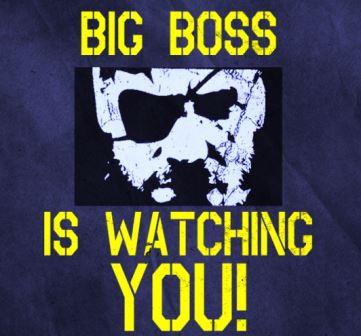With the world of work moving towards freedom and flexibility, policing and spying on employees can have negative impacts.
Advancements in technology have led to contradictory scenarios in the workplace. While, on one hand technology enables working anytime, anywhere, making organisations more comfortable with flexible ways of working, on the other hand it is technology that enables real-time surveillance of employees across the workplace making them feel stressed and scared to perform at ease.
Organisations have always been keeping a tab on employee performance and behaviours through various direct or indirect methods, but technology has taken it to a new level. With mood-o-meters, smart sensors and other such technologies, organisations are tracking various kinds of information about employees, including how long they go without talking with one another, and even when and how long they are away from their desks.

It is clear that privacy at the workplace is under the scanner as companies go overboard monitoring employee activities. However, it is something that, beyond a level, irks workers, and in turn, hampers their productivity and workplace behaviour. Sriharsha Achar, director & chief human resources officer at Max Bupa Health Insurance Company, says, “With so much monitoring and control, people will always be scared to do anything.”
In times when the world of work is moving towards freedom and flexibility, policing and spying on employees does not make any sense. However, it could still be justified in organisations dealing with some sensitive or confidential information. In addition, Achar says, “As far as discipline is concerned, it needs to be maintained, as it is required, but beyond that, employers should not invade the privacy of people.”
Also, such James Bond-level spying in the workplace tends to make people feel that their employers do not trust them, and without mutual trust no relationship has ever worked. Ravi Mishra, regional HR head-South Asia & Middle East, Birla Carbon, explains, “In my experience, one can get the best from employees only by trusting them. Policing will never help improve performance. The basic instinct of humans is such that trust motivates people to do better, while monitoring only increases lack of trust.”

In addition, the sense of fear at the workplace is no use, as it pulls down performance. Achar explains that fear motivation may last for a little while, but subsequently, it’ll pass because nobody has got the time to see all the information gathered from the sensors or gadgets. It is only reviewed in a post-mortem situation. It is only meant to keep a general check. Even the cameras installed at workplace are meant to take care of any untoward incidents like theft and harassment, ensuring people’s safety in the workplace.
Technology helps provide information that can be looked at and utilised in case something goes wrong, but saying that everything may go wrong and hence monitoring everything is over-governance, which will never be appreciated. “If you have someone looking over your shoulder all the time, then you’ll always be worried and that could lead to attrition as many people cannot work under such circumstances, particularly women,” Achar opines. Moreover, with that level of monitoring, talking of diversity, respecting women, care & belongingness, and empowerment, and so on, all become meaningless.
Workplace spying should be restricted to attendance monitoring and getting the work done. There are indirect mechanisms to do the same— meet, discuss or conduct surveys. There is no need for any gadgetry check. In line with that, Achar says, “I would rather prefer to give the employees the space to work at their own pace and their choice of place. At the end of the day, what matters is whether the job is done or not and whether it has been done in the right manner or not.”
Last but not the least, Mishra concludes with the undeniable fact that people are of utmost importance, and in the greed to increase productivity, organisations cannot risk turning off their greatest resource — people. “I am not in favour of such spying at the workplace as the outcome will never be so productive,” he says as he shares Henry Ford’s beautiful words — “You can take my factories, burn up my buildings, but give me my people and I’ll build the business right back again.”


